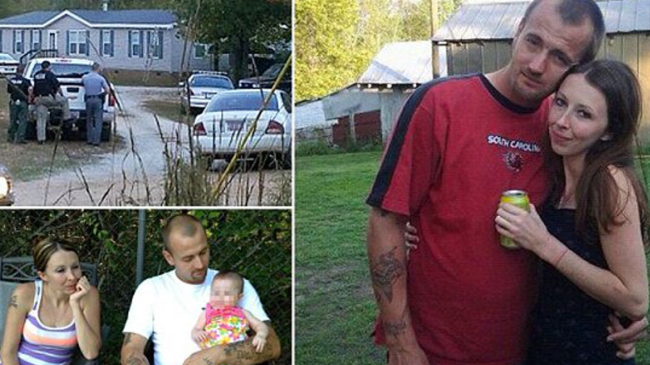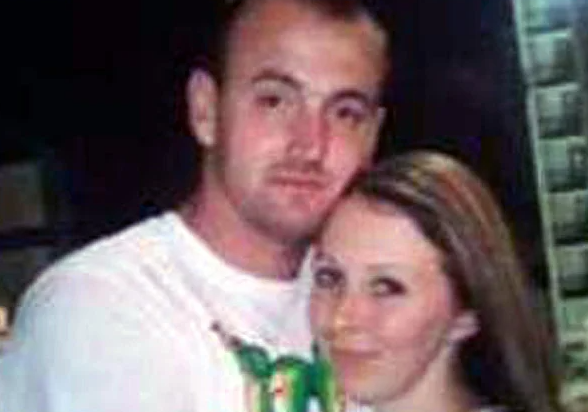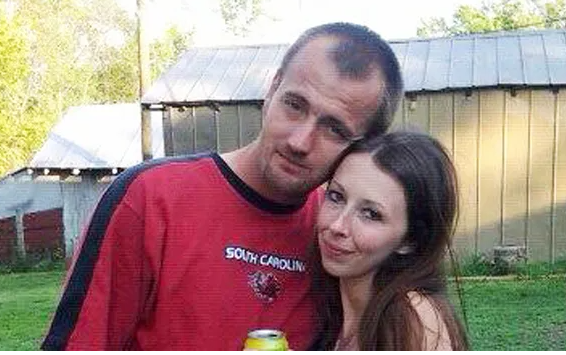The Facebook Ranting Child Killer: Bryan Sweat

The Facebook Ranting Child Killer: Bryan Sweat
The murder of an innocent child is always a tragedy, but when it is committed by someone who openly displayed violent and unhinged thoughts on social media, it becomes an even more haunting reflection of modern society. The case of Bryan Sweat, often dubbed “The Facebook Ranting Child Killer,” is a chilling example of how ignored warning signs and unchecked rage can culminate in an unthinkable crime. This is a story of mental instability, domestic dysfunction, and the devastating consequences of failing to act on obvious red flags.

Background: Who Was Bryan Sweat?
Bryan Sweat was a young man from South Carolina whose violent behavior and instability were no secret to those who knew him. His Facebook page became infamous after his arrest, filled with disturbing rants, angry declarations, and signs of deep emotional turmoil. Long before the murder, he had posted content that raised red flags — messages laced with hatred, threats, and resentment toward others, including those closest to him.
His life was marked by a history of erratic behavior, unstable relationships, and brushes with law enforcement. But like many cases involving potential domestic threats, he slipped through the cracks. What should have been treated as a warning was often ignored or downplayed — until it was too late.
The Victim: A 5-Year-Old Boy
The victim of Bryan Sweat’s violence was a five-year-old boy named Devon, the child of Bryan’s ex-girlfriend. Devon was not Bryan’s biological son, but during the time Bryan had been involved with the boy’s mother, he had developed a close relationship with the child. However, when the romantic relationship ended, resentment and jealousy began to consume him.
Devon was described by family members as a sweet and happy child, full of energy and affection. His life was cut tragically short on a summer day when he was brutally murdered by Bryan Sweat — the very man who had once played the role of a father figure in his life.
The Murder
The details of the crime are as horrifying as they are heartbreaking. In a calculated act of revenge and rage, Bryan Sweat abducted Devon from his home. After taking the boy to a secluded area, he strangled and murdered him before attempting to take his own life. Bryan was found shortly after, alive but in critical condition. Authorities were able to arrest and charge him with the murder of the child.
The community was shocked. How could this have happened? The answer lay, in part, in Bryan’s own digital footprint.
The Facebook Rants: A Portrait of a Killer’s Mind
Bryan Sweat’s Facebook page painted a disturbing portrait of a man unraveling. In the weeks leading up to the murder, his posts became increasingly dark and aggressive. He expressed feelings of betrayal, hatred, and revenge. He made vague — and sometimes explicit — threats. He seemed to be crying out for help or attention, though whether it was a genuine plea or a manipulation is unclear.
One post, written days before the murder, read something akin to: “People always push me too far… one day they’re gonna see what I’m capable of.” Posts like this were not rare; they were part of a larger pattern of digital cries filled with venom and despair.
It is unclear whether anyone ever reported these posts to authorities, or if any steps were taken to intervene. In hindsight, his social media trail reads like a ticking time bomb, a journal of rage leading to an inevitable explosion.

A Systemic Failure
The tragedy of Devon’s death is compounded by the systemic failure to prevent it. Bryan Sweat was known to be unstable. He had prior incidents involving domestic disputes and anger management issues. He had a digital trail that suggested a propensity for violence. And yet, he remained free, unsupervised, and able to act on his impulses.
This case raises serious questions about how authorities respond to online threats and mental health red flags. Social media is now a window into the inner lives of individuals — for better or worse. In Bryan’s case, it was a flashing warning light that no one bothered to heed.
There are also deeper concerns about how society supports victims of domestic violence and protects children in potentially dangerous environments. Bryan may not have been Devon’s biological father, but his access to the child should have been restricted given his behavior. This failure cost a child his life.
The Aftermath
After the murder, Bryan Sweat survived his suicide attempt and was charged with first-degree murder. He later entered a guilty plea to avoid the death penalty and was sentenced to life in prison without the possibility of parole. The courtroom was filled with grief-stricken family members, including Devon’s mother, who struggled to understand how someone she once trusted could do something so vile.
The case made local and national headlines, not just for the horror of the crime, but for what it represented: the dangers of ignoring digital warning signs and the consequences of untreated mental instability. Mental health advocates pointed to the need for more intervention services, especially for individuals showing signs of dangerous behavior online.
Reflections: A Modern Tragedy
The murder of Devon by Bryan Sweat is not just a personal tragedy — it is a societal one. It reflects the dark intersection of modern technology, mental illness, and domestic dysfunction. In a world where people share their thoughts and emotions online more than ever, we must learn to take threats and disturbing behavior seriously.
There are countless individuals like Bryan Sweat, showing signs of unraveling, crying out for help, or even threatening harm — yet few of them receive the attention or intervention they need. This case reminds us that we cannot afford to dismiss online behavior as “just talk.” Words matter. Digital footprints can predict real-world violence.

Conclusion
The story of Bryan Sweat — “The Facebook Ranting Child Killer” — is a cautionary tale about the high cost of inaction. A vulnerable child lost his life because warning signs were missed, cries for help were ignored, and access to a dangerous individual was not restricted. Devon’s murder is a heartbreaking reminder that we must take threats seriously, especially in a digital age where the signs of impending violence are more visible than ever.
There is no bringing Devon back. But we can honor his memory by doing better — by paying attention, by intervening sooner, and by never dismissing the cries of a troubled mind as mere noise. Lives depend on it.





